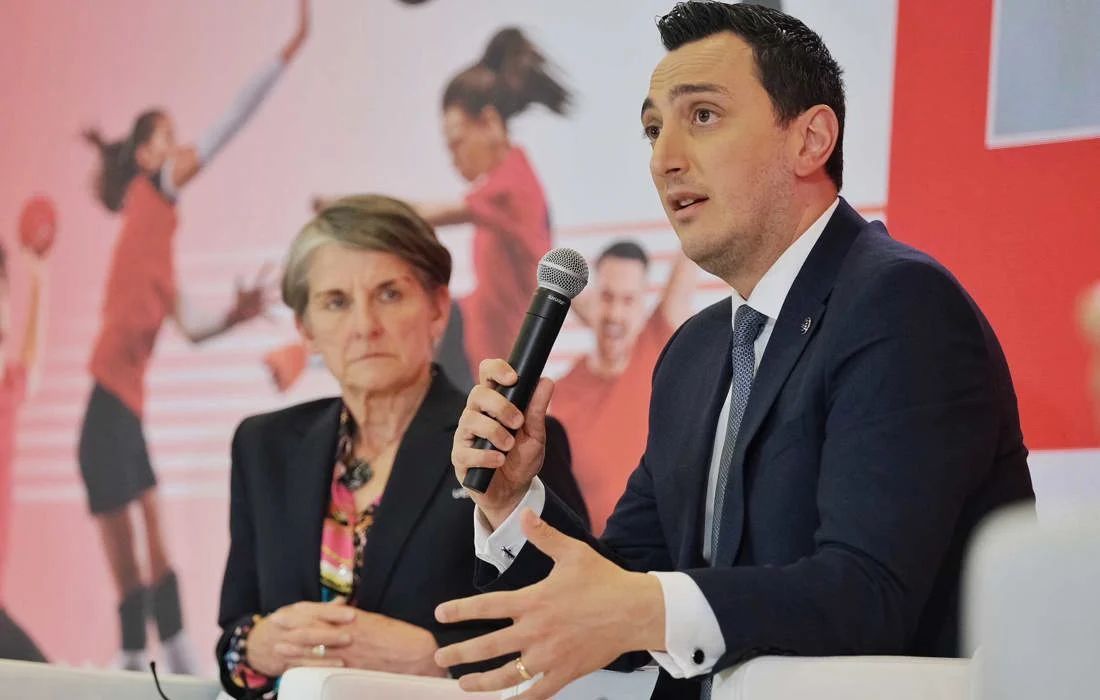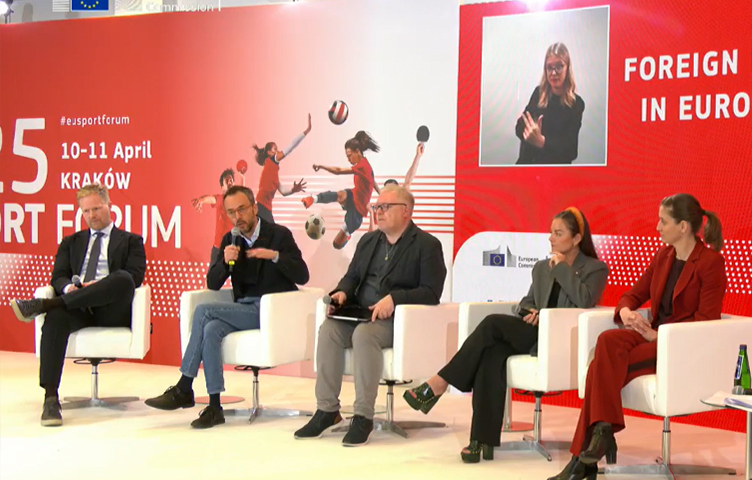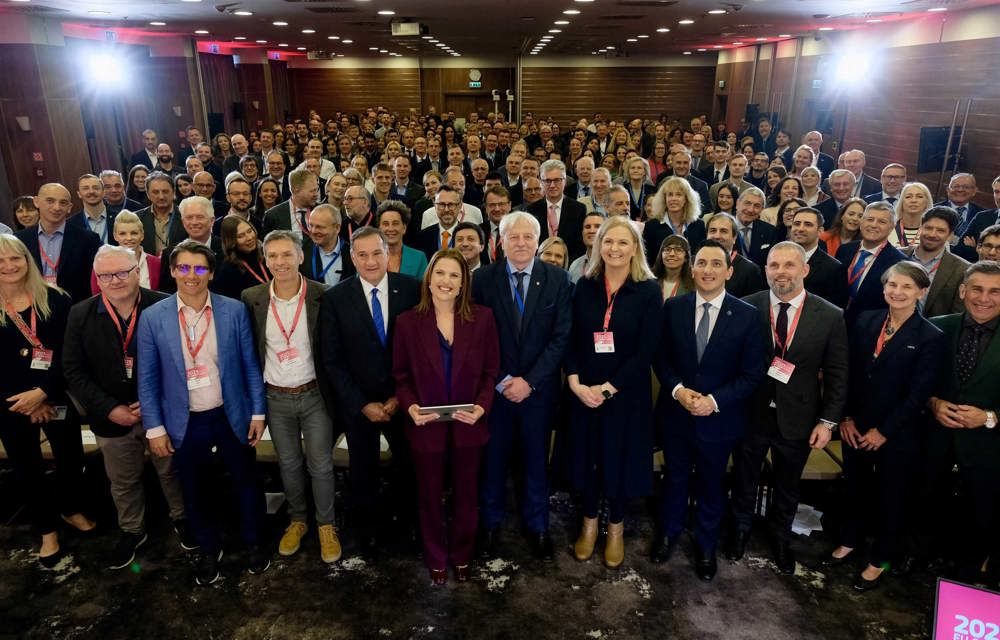Last week, on 11–12 April 2025, the European Leagues participated in the EU Sport Forum 2025, held this year in Kraków, on the occasion of the EU Polish Presidency. Organised annually by the European Commission, the Forum stands as the flagship platform for shaping sport policy at the European level.
Bringing together key stakeholders from European institutions, sport federations, Olympic committees, national ministries, and representatives from various European football organisations, the Forum offered a unique platform for dialogue and cooperation.
European Commissioner for Intergenerational Fairness, Youth, Culture and Sport, Glenn Micallef, opened the Forum by emphasising sport’s unique role in strengthening community, inclusion, and youth engagement across the continent. In his introductory speech, he praised the European Sport Model and stressed the need to preserve values such as solidarity, inclusiveness, open competitions, and the importance of protecting and enhancing the competitiveness of sport.
He also referred to the economic value of sport in Europe, highlighting that 4% of GDP is generated by the sector and 4% of the population is employed by sport organisations.

The European Leagues, represented by Alberto Colombo, Deputy General Secretary, took part in an insightful panel discussion alongside representatives from FIFPRO Europe, the European Club Association, the Union of European Clubs, and Football Supporters Europe. The panel, opened by a video message Javier Tebas, President of LALIGA, addressed the growing trend of foreign investment in football, exploring both the potential opportunities and the challenges it brings.
During the session, the leagues stressed how foreign investments in football have become a significant part of the game and reflect the principle of free movement of capital. These investments contribute to the growth and development of European football but it is essential to ensure that they continue to adhere to both economic and sporting regulatory frameworks.
The European Leagues also reiterated how vital is to continue to protect domestic football in Europe from investments that disrupt the competitive balance of their competitions while protetcting the “social contract” between thousands of professional clubs in Europe and their local communities.

Back to All News

